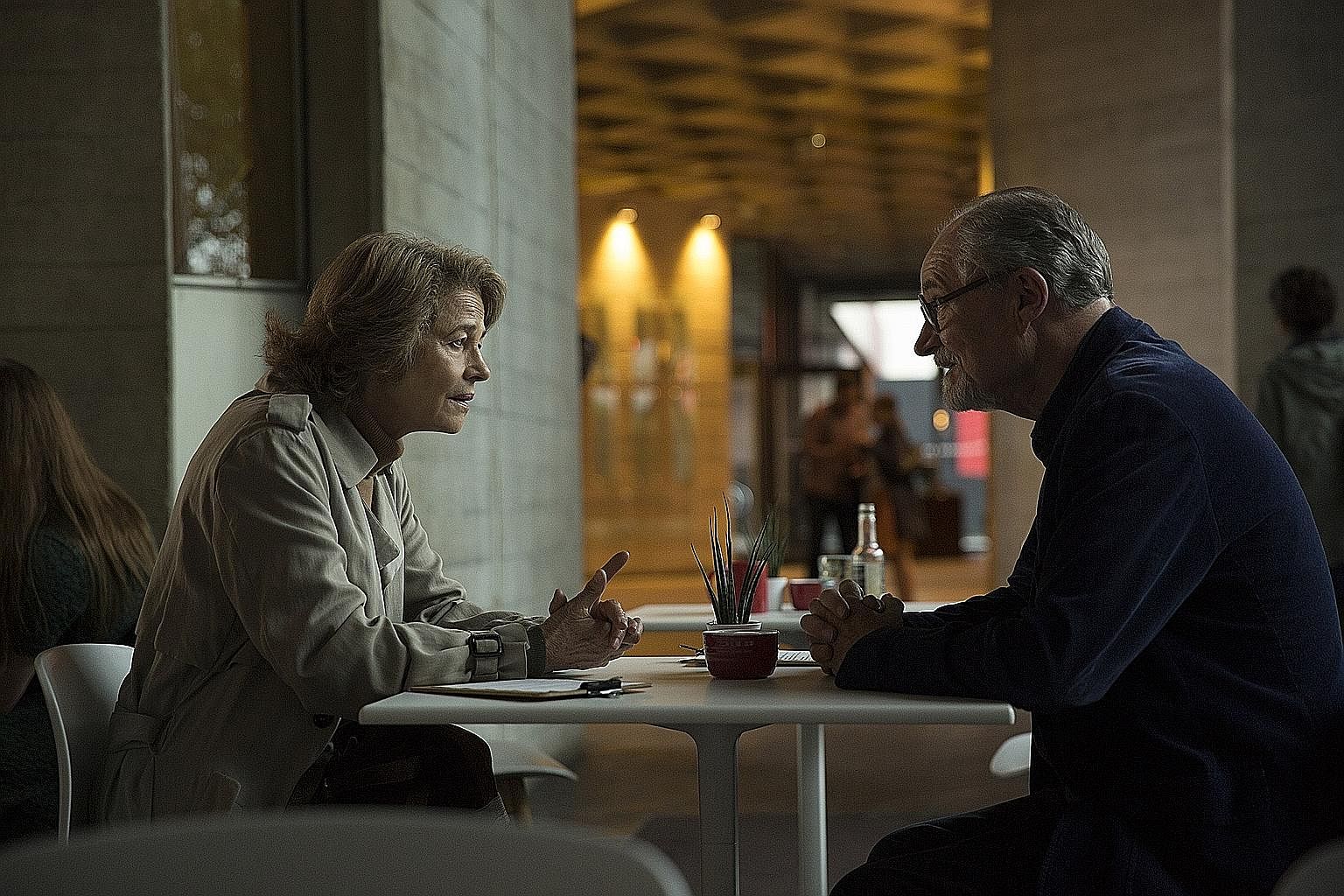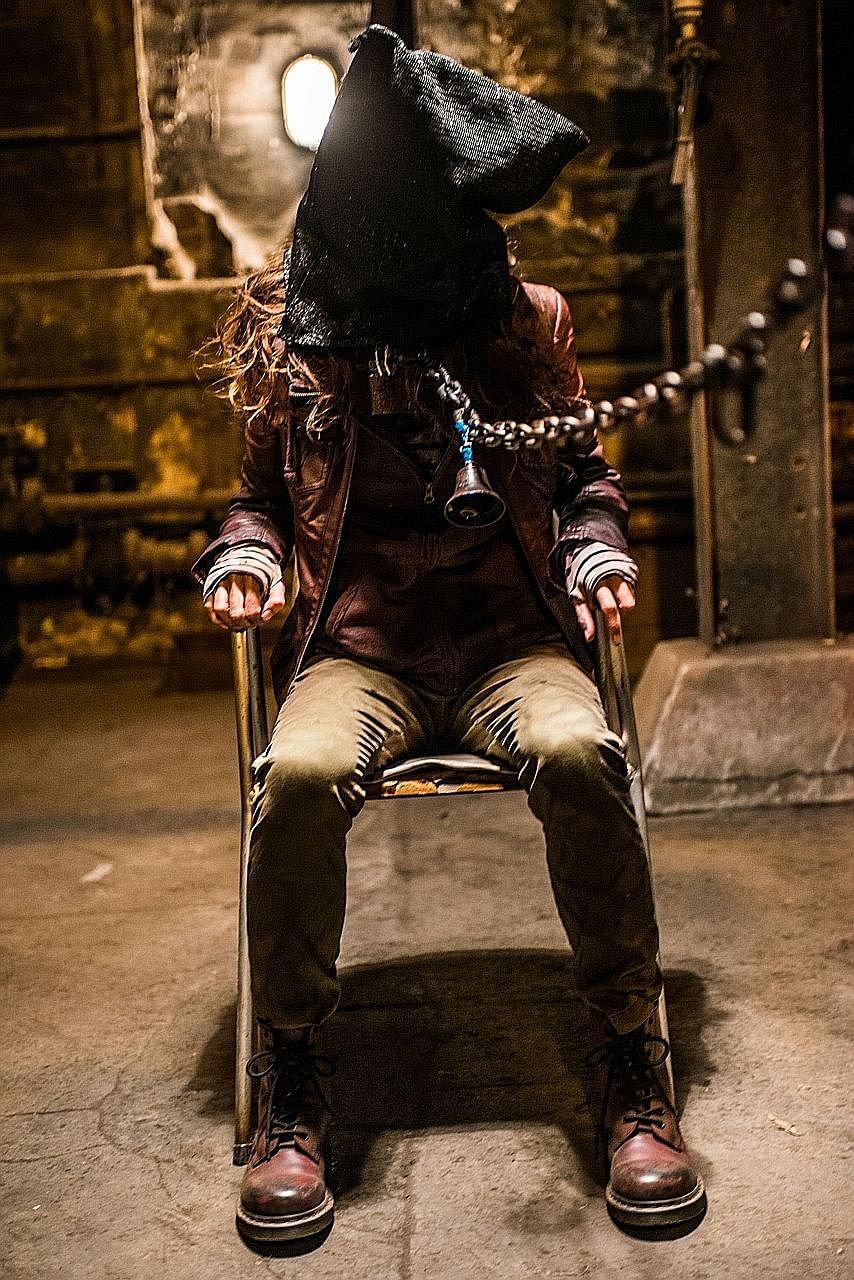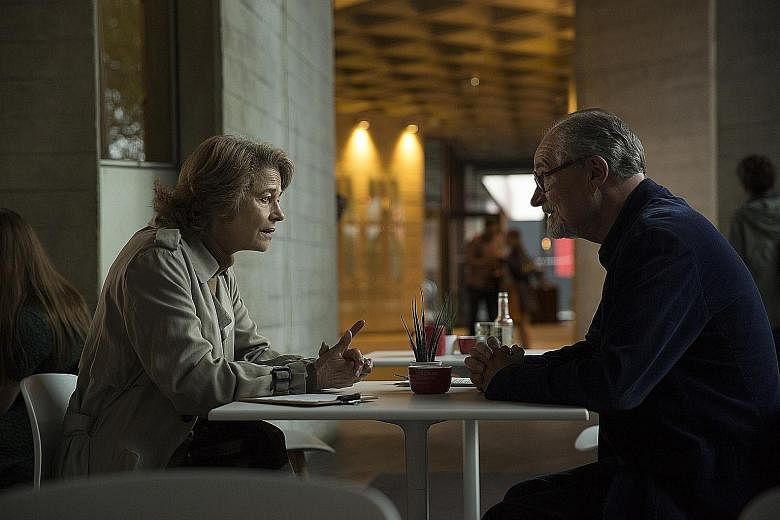This week, there are two films that could not be more different. One is a prestige drama designed to fill one with sadness and awe; the other, a grimy horror flick packed with madness and gore.
Neither, it must be said, has much going for it.
The Sense Of An Ending(NC16, 109 minutes, opens tomorrow, 2.5/5 stars) is based on English author Julian Barnes' 2011 novel about a man whose actions more than 40 years ago come back to nag at him.
This adaptation from first-time feature screenwriter Nick Payne struggles to find a clean, interesting path through a story controlled by the voice-over narration and point of view of the protagonist, Tony Webster, played with lovable grumpiness by Jim Broadbent.

Director Ritesh Batra, who helmed the hit indie drama- comedy, The Lunchbox (2013), does an admirable job not letting Webster's musings re-state what the images are already saying.
The story starts in the present day, when Webster, a curmudgeonly vintage camera shop owner, receives a note telling him that he has been left an inheritance by someone he lost touch with in the 1960s.
There are frequent flashbacks to when he, as a university student (played as a young man by Billy Howle), meets the love of his life, the alluring Veronica (played by Freya Mavor, and Charlotte Rampling in the present-day scenes).
Webster, Veronica and his best friend, Adrian Finn (Joe Alwyn), are caught in tortuous circumstances that result in the note Webster receives four decades later.
For a narrative that deals with the idea of subjective interpretation, Batra's storytelling style is oddly flat and unpoetic.
The film's theme of the moral dangers of reverie, once removed from the context of Barnes' novel, also loses richness of meaning in Batra's hands.
There are also treacly segments about living in the moment and loving the people you are with today, rather than having one's head stuck in the past.
For what is supposed to be a story adapted from a novel by a major literary figure, these lessons are a bit much.

The low-budget work of closed-room horror From A House On Willow Street (NC16, 87 minutes, opens tomorrow, 2/5 stars) is a re-do of an old formula: Evil hunters become prey when they encounter a force more evil and powerful than them.
Hazel (Sharni Vinson), Ade (Steven John Ward) and other gang members kidnap Katherine (Carlyn Burchell) in the belief that her rich family will pay for her release, not realising that Katherine contains forces that will spell doom for everyone.
There is nothing wrong with the premise, but this South African production, which sets the story in the United States, leans heavily on jump scares at the expense of plot and character.
There are a couple of effective moments of fright here, but those are undone by the scene involving two priests and a demon-possessed woman. Watch it if you want to know what The Exorcist (1973) would be like if it had been made as a comedy.


